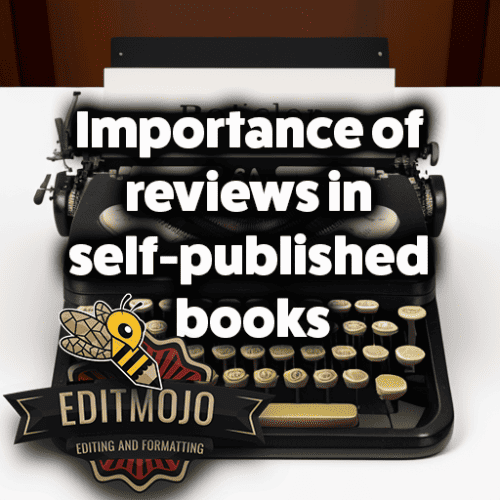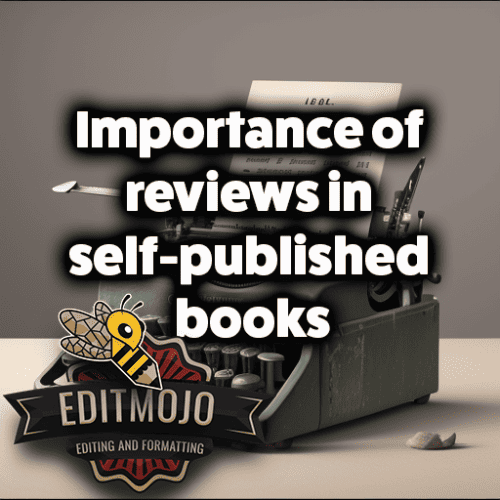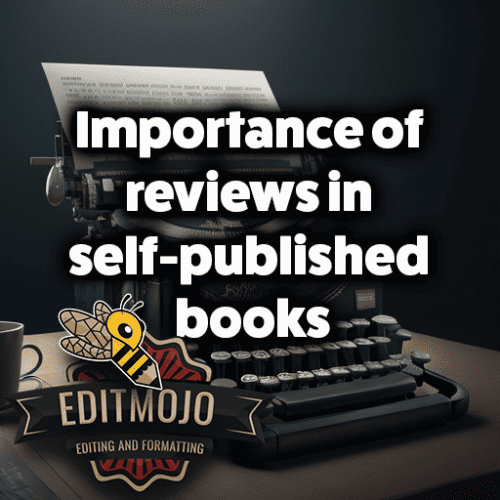Importance of reviews in self-published books
Importance of reviews in self-published books. The publishing industry has undergone a dramatic transformation over the past few years, with the rise of self-publishing becoming an increasingly popular choice among authors worldwide. In this brave new world, the conventional gatekeepers of literary success have been bypassed, replaced by a more democratic and open platform. However, this freedom comes with its own set of challenges. One key aspect that can significantly influence a self-published book’s journey is the power of reviews. This article will delve into the importance of reviews, their influence on readers and the self-publishing market, and how authors can leverage this often overlooked asset.
Key Takeaways
| Aspect | Key Takeaway |
|---|---|
| Self-Publishing Landscape | Self-publishing platforms like Amazon Kindle Direct Publishing, Smashwords, and Lulu have democratized the publishing industry. |
| Significance of Reviews | Reviews are vital in self-publishing for visibility and sales, acting as social proof and influencing algorithms on self-publishing platforms. |
| Power of Positive Reviews | Positive reviews can significantly boost a book’s visibility, sales, and rankings. Detailed, thoughtful reviews can guide potential readers to a purchase. |
| Navigating Negative Reviews | Negative reviews can be opportunities for improvement and lend authenticity to a book’s review portfolio. |
| Encouraging & Getting Reviews | Authors should proactively seek reviews through direct requests, social media, book clubs, and ARC distribution. Ethical guidelines should always be followed. |
| Responding to Reviews | Positive reviews can be thanked and shared, but responses to negative reviews should be handled cautiously, generally taking into account the feedback without directly engaging. |
| Future of Reviews | The review landscape is set to evolve with technology and shifts in reader behavior, including increased video reviews and personalized recommendations through AI. |
The Self-Publishing Landscape
Self-publishing has a rich history. Originally considered a path for those who couldn’t get a traditional publishing deal (often unfairly dubbed “vanity press”), it has evolved into a choice of empowerment for many authors. With the advent of platforms like Amazon Kindle Direct Publishing, Smashwords, and Lulu, it’s never been easier to take control of your literary destiny.
The Significance of Book Reviews
In traditional publishing, professional reviewers and media coverage often determine a book’s initial success. However, in the self-publishing world, the situation is radically different. Reviews become the lifeblood of a book’s visibility and potential sales. They serve as a form of social proof, validating the quality of the work to potential readers.
Moreover, algorithms in digital marketplaces like Amazon are believed to favor books with a high number of reviews. They are seen as an indicator of a book’s popularity and, therefore, given priority in search results and recommendations.
The Power of Positive Reviews
Positive reviews can provide a significant boost to a self-published book’s visibility and sales. The psychological impact of seeing a plethora of glowing reviews cannot be underestimated. For instance, consider the case of E.L. James’ self-published phenomenon, Fifty Shades of Grey. The book’s success was fueled in part by enthusiastic reviews and word-of-mouth recommendations, which sparked curiosity and led to record-breaking sales.
On the other hand, it’s not just about quantity but also quality. Detailed, thoughtful reviews can provide potential readers with a comprehensive understanding of a book, increasing their likelihood of making a purchase.

Navigating Negative Reviews
However, it’s not always sunshine and rainbows. Negative reviews are an inevitable part of an author’s journey. Rather than seeing these as setbacks, authors can view them as opportunities for growth. Negative feedback, if constructive, can guide authors to improve their work in future editions or titles.
Consider the story of Celeste Ng, the acclaimed author of Little Fires Everywhere. Early in her career, she utilized feedback from less-than-stellar reviews to refine her storytelling, eventually leading to her breakout success. Negative reviews can also lend authenticity to a book’s review portfolio. A book with exclusively positive reviews might be perceived as too good to be true, making potential readers skeptical.
Encouraging and Getting Reviews
Securing reviews requires proactive effort from authors. Best practices include asking readers directly in the book’s closing sections or using social media to reach out to readers and book clubs. A robust method to gather early reviews is distributing Advance Review Copies (ARCs) via platforms like NetGalley.
However, it’s crucial to remember that soliciting reviews must always adhere to ethical guidelines. Offering incentives for positive reviews or engaging in review swapping is frowned upon and can lead to severe repercussions, including removal from publishing platforms.
Responding to Reviews
The etiquette of responding to reviews is a topic of much debate. My personal opinion is that it’s acceptable to thank readers for positive reviews. However, responding to negative reviews can be a slippery slope. Generally, it’s advisable to take the feedback into consideration without directly engaging with the reviewer, as this can lead to unnecessary conflict.
Sharing and promoting positive reviews across social media platforms can help to amplify their reach, encouraging more potential readers to give your book a chance.

Future of Reviews in Self-Publishing
The world of reviews is not static; it continually evolves along with advancements in technology and shifts in reader behavior. Predicted trends include an increase in video reviews, with platforms like YouTube and TikTok offering innovative ways for reviewers to share their thoughts. AI technology also has the potential to revolutionize the review landscape by offering more personalized book recommendations based on user’s previous reviews and reading history.
Conclusion (Importance of reviews in self-published books)
In conclusion, reviews play a critical role in the success of self-published books. They provide credibility, boost visibility, influence reader behavior, and can even shape the trajectory of an author’s career. As self-publishing continues to grow and democratize the world of literature, the importance of reviews will undoubtedly keep pace.
Regardless of the challenges and criticisms that might come your way, remember the words of Neil Gaiman, “Remember: when people tell you something’s wrong or doesn’t work for them, they are almost always right. When they tell you exactly what they think is wrong and how to fix it, they are almost always wrong.” Embrace the feedback, learn from it, and keep writing.

Additional Resources (Importance of reviews in self-published books)
For more tips on writing compelling stories that elicit positive reviews, check out Writer’s Digest. If you’re interested in reading more about successful self-published authors and their experience with reviews, The Creative Penn offers numerous interviews and resources that could be of help. Happy writing, and may the reviews be ever in your favor!
Top Five Questions and Answers
| Question | Answer |
|---|---|
| 1. Why are reviews important in self-publishing? | Reviews serve as social proof, validating the quality of the book to potential readers. They also help increase visibility and potential sales, and can influence the algorithms on self-publishing platforms. |
| 2. How can positive reviews affect a self-published book? | Positive reviews boost a book’s credibility, visibility, and sales. Detailed, thoughtful reviews can provide a comprehensive understanding of a book to potential readers, increasing the likelihood of a purchase. |
| 3. How should authors deal with negative reviews? | Negative reviews, if constructive, can guide authors to improve their work. They can also lend authenticity to a book’s review portfolio. Authors should handle negative reviews cautiously, generally accepting feedback without directly engaging with the reviewer. |
| 4. How can authors encourage more reviews? | Authors can ask readers directly, reach out through social media and book clubs, and distribute Advance Review Copies (ARCs) to potential reviewers. However, soliciting reviews must adhere to ethical guidelines. |
| 5. How might the future of reviews in self-publishing look? | The future might see an increase in video reviews, with platforms like YouTube and TikTok offering new ways for reviewers to share their thoughts. AI technology could also revolutionize the review landscape by providing more personalized book recommendations based on a user’s previous reviews and reading history. |
